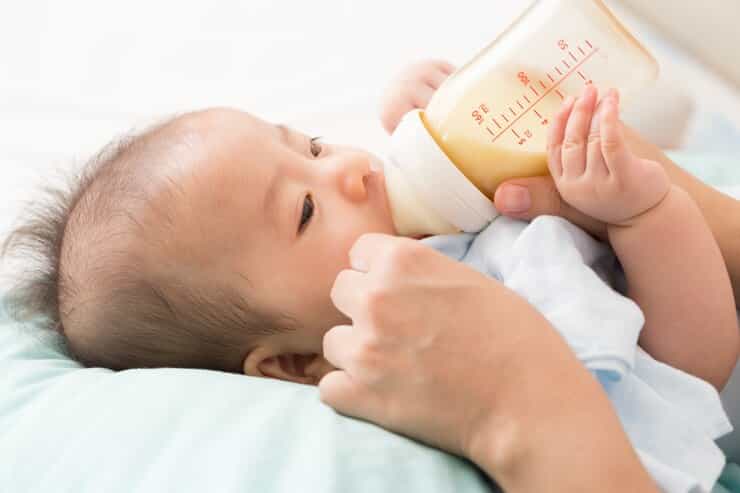Is Bottle Feeding Safe For Newborn Baby: Making the Right Choice

In the realm of nurturing newborns, the question of whether bottle feeding safe for newborn baby often arises, especially in comparison to the tried-and-true method of breastfeeding. As concerned caregivers, it’s crucial to explore the nuances surrounding this topic to make informed decisions for the well-being of our little ones.
Why Bottle Feeding Might Pose Risks
Lack of Nutrient Variety
One primary concern with bottle feeding is the potential lack of nutrient diversity compared to breast milk. While formula milk attempts to replicate the nutritional components of breast milk, it may fall short in providing the wide range of antibodies and bioactive compounds that contribute to a newborn’s immune system development.
Digestive Challenges for Newborns
Newborns often face digestive challenges, and the transition from breastfeeding to bottle feeding might exacerbate these issues. The composition of formula milk, although carefully crafted, may not perfectly mimic the dynamic nature of breast milk, potentially leading to digestive discomfort in some infants.
Is Bottle Feeding Safe for a Newborn Baby in the First 6 Months?

Quantity Matters
When considering the safety of bottle feeding for newborns, the quantity of formula milk becomes a crucial factor. Caregivers must be attentive to the nutritional guidelines for babies aged 0-6 months. Overfeeding or underfeeding can have implications for the baby’s growth and development.
Best Practices for Bottle Feeding a Breastfed Baby
Transitioning Smoothly
For parents who decide to transition from breastfeeding to bottle feeding, it’s essential to approach the change with sensitivity. Start by introducing the bottle gradually, allowing the baby to adapt to the new method of feeding. This gentle transition can help avoid potential aversions or resistance.
The Optimal Position for Bottle Feeding a Newborn
Ensuring Comfort and Bonding
Choosing the best position to bottle feed a newborn is not only about practicality but also about creating a bonding experience. Holding the baby close, maintaining eye contact, and ensuring a comfortable position contribute to the overall well-being of the baby during feeding sessions.
Tips for Successful Bottle Feeding of a Newborn
Creating a Nurturing Environment
Creating a calm and nurturing environment during bottle feeding is paramount. Minimize distractions, maintain a consistent feeding schedule, and pay attention to the baby’s cues. These practices can enhance the bonding experience and contribute to the baby’s overall sense of security.
Bottle Feeding vs. Spoon Feeding: Making the Right Choice
Weighing the Options
The choice between bottle feeding and spoon feeding is a personal one, influenced by various factors such as convenience, lifestyle, and the baby’s preferences. Caregivers should weigh these factors carefully and choose the method that aligns best with their individual circumstances.
FAQ’s
Is it Safe to Feed a Newborn with a Bottle?
Yes, it is generally safe to feed a newborn with a bottle when following proper guidelines for hygiene, formula preparation, and choosing age-appropriate nipples.
What Are the Side Effects of Bottle Feeding?
Potential side effects of bottle feeding may include a higher risk of gas or colic, as well as the possibility of the baby developing a preference for the bottle over breastfeeding.
What Are the Disadvantages of Bottle Feeding?
Bottle feeding disadvantages may encompass the lack of antibodies present in breast milk, potential difficulties with digestion, and the need for careful attention to formula preparation and cleanliness.
Which Is Better: Spoon Feeding or Bottle Feeding?
The choice between spoon feeding and bottle feeding depends on various factors, including the baby’s preferences, caregiver convenience, and individual circumstances. Each method has its pros and cons, and what works best can vary from one baby to another.
Conclusion: Bottle feeding, with careful consideration, can be a safe choice for newborns, recognizing that each baby is unique. As caregivers, our responsibility is to make informed decisions that prioritize the health and well-being of our precious little ones.
- Explore a thoughtfully curated array of articles on our Homepage, intricately designed to steer you toward improved health and overall well-being.



